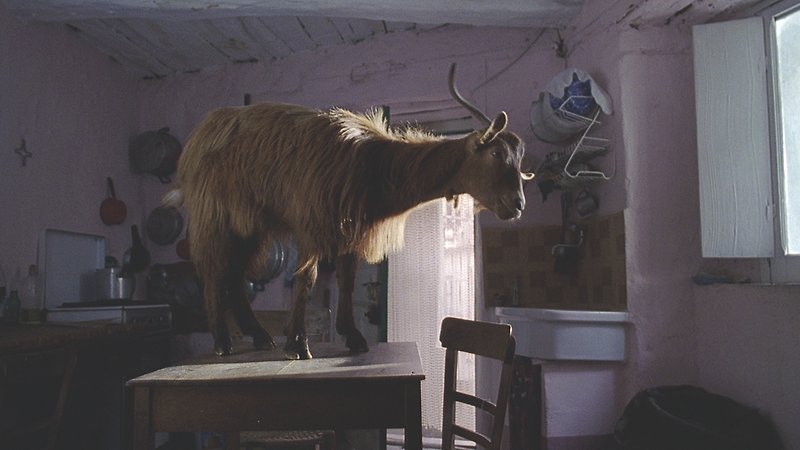A rugged valley in Italy’s mountainous region of Calabria is the setting for this wonderful film, a spellbinding take on a way of life as old as the elements. "Fresh and ravishingly poetic." LA Times

Grave, beautiful, austerely comic... This skeptic found it pretty darn sublime.
Screened as part of NZIFF 2011
Le quattro volte 2010
Michelangelo Frammartino’s ode to the cycles of nature applies a wryly detached ‘documentary’ eye to what is in fact a meticulously staged and richly loaded drama – in which some of the principal actors are mineral, vegetable and animal. Here humanity is no longer at the centre of the universe, simply part of its mysterious process: we see a mighty tree accorded more ceremony in death than a superstitious old man. Frammartino’s eye on the animal world is little short of miraculous. He holds us enthralled by the territorial contests of baby goats – and, in a shot that will live forever in cinema history, floors us with the intervention in human affairs of a dog. This mutt’s seamless execution of an elaborately choreographed gag makes up for the lack of a Buster Keaton comedy on this year’s programme. — BG
“Le quattro volte, an idiosyncratic and amazing new film… is so full of surprises – nearly every shot contains a revelation, sneaky or overt, cosmic or mundane – that even to describe it is to risk giving something away… In four chapters… Mr Frammartino successively chronicles the earthly transit and material transmutation of an old man, a young goat, a tree and a batch of charcoal. Each being or thing is examined with such care and wit that you become engrossed in the moment-to-moment flow of cinematic prose, only at the end grasping the epic scope and lyrical depth of what you have seen, which is more or less all of creation.” — A.O. Scott, NY Times